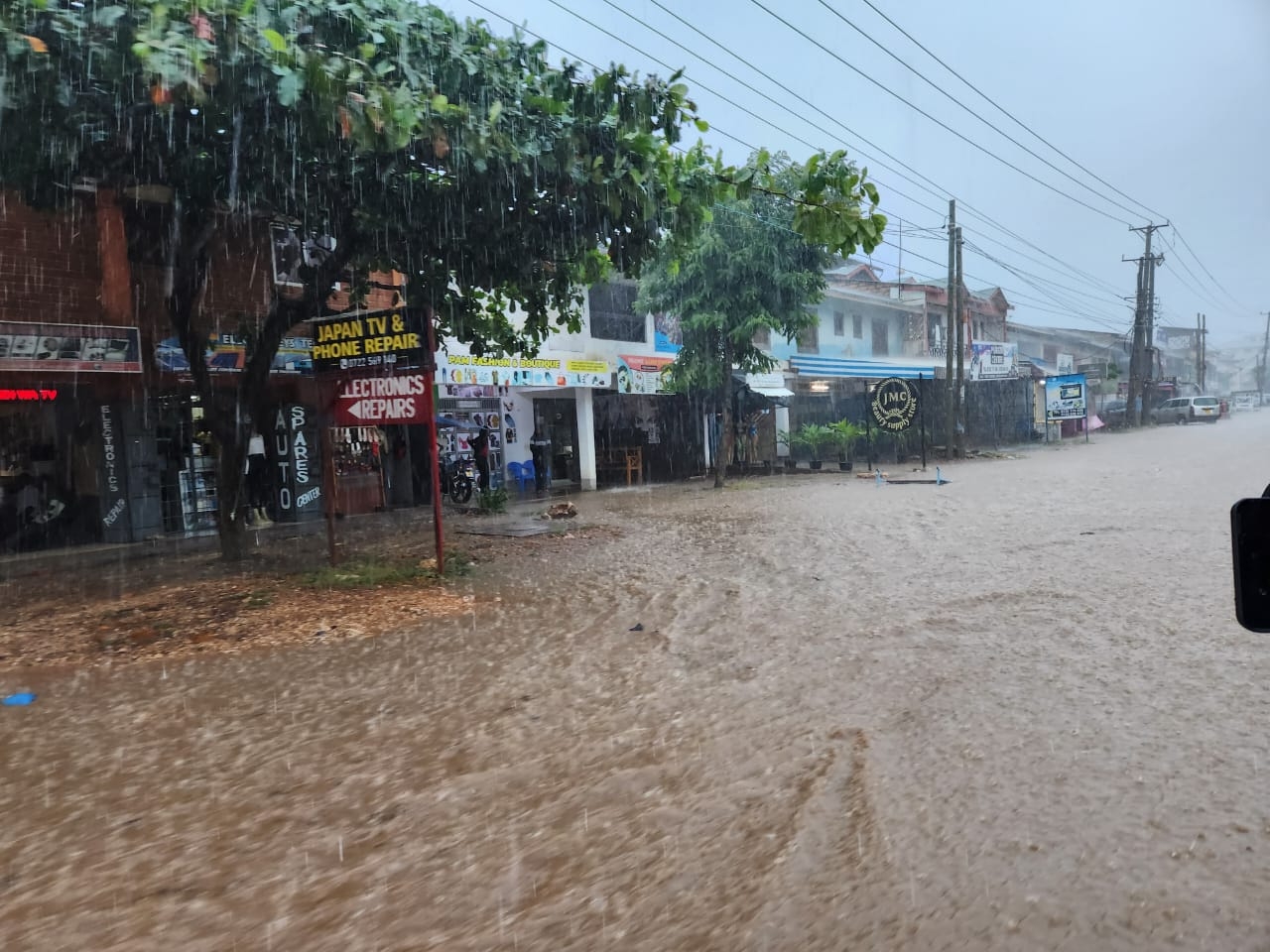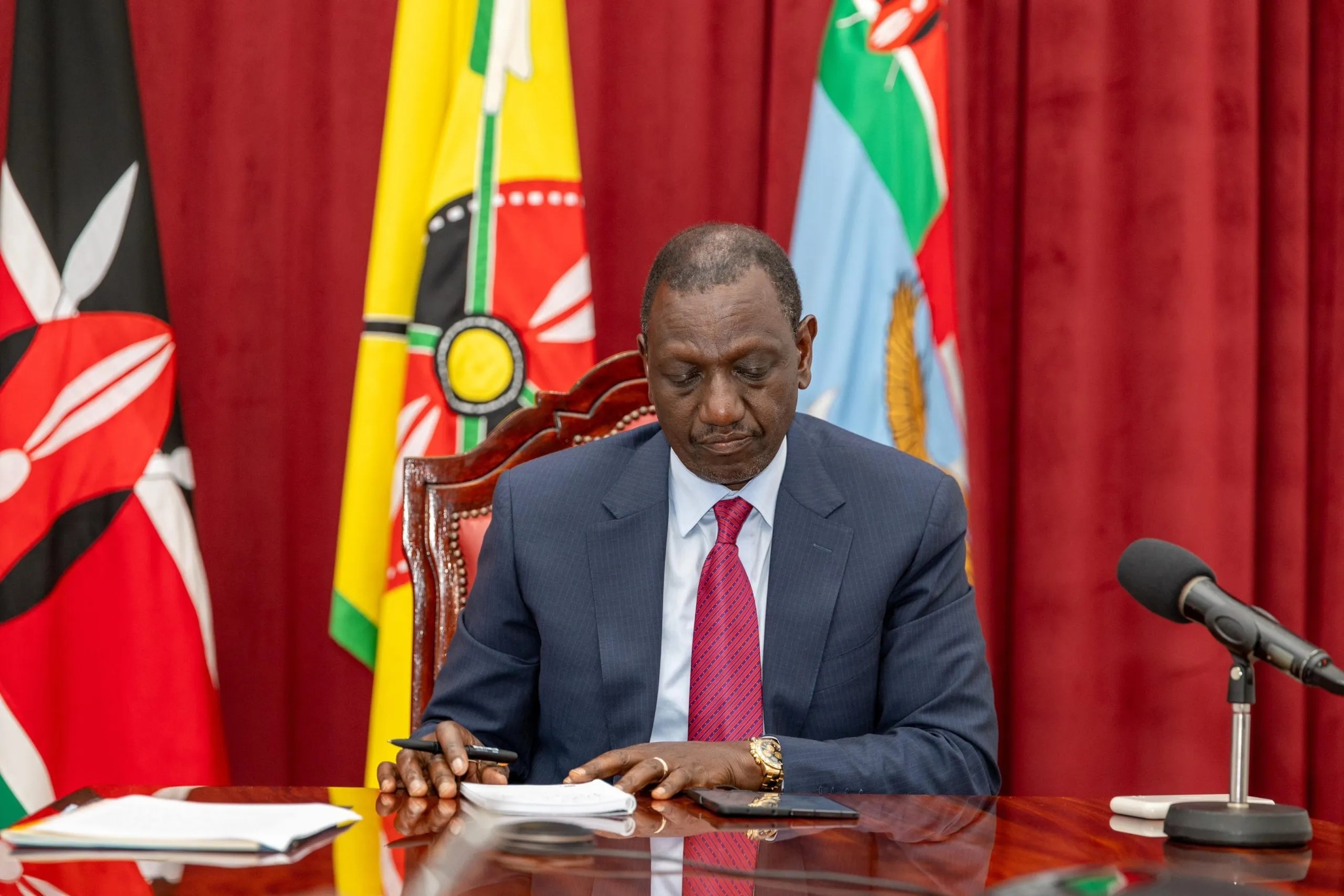Last Saturday, my wife Kagendo and I had the privilege of attending a captivating event at Nairobi’s French Cultural Centre, also called Alliance Française. The gathering, attended by more than 60 youthful art enthusiasts and a number of art sages, featured a talk by Paul Kelemba, a veteran Kenyan cartoonist and comic artist. Many Kenyans know him as Maddo.
The event was dialogic. Maddo engaged in a thought-provoking interlocution with the lively audience and his dreadlocked host Kimani wa Wanjiru, a champion of this unique art form and an Arts Journalist with Kymsnet Media Network.
In a July piece published in The Elephant, Kimani said of Maddo, “Kelemba’s was the editorial cartoon that redefined the state-media relations and broke the myths that had been developed by state agencies [especially in the Nyayo era in 1980s-90s] about the presidency and freedom of expression.” Kimani has been on a sustained campaign for years to elevate the visibility of cartoon and comic art and artists from Kenya.
This enchanting Maddo and Kimani artist-critic art talk event seamlessly blended with the overarching government agenda in Kenya today to promote art and culture, evident in the revamped initiatives by the line ministry to pay closer attention to these domains in a visible, progressive and sustainable manner. What a marked departure from earlier encounters between the media, art and politics in our motherland!
Since the tumultuous dawn of the Nyayo era in the 1980s, Maddo, a pioneer in the field, is a trailblazing figure within Kenya’s pop-art landscape for more than 40 years. His journey into cartoon art was influenced by pop media gurus like James Bailey from SA, who ran Drum Magazine, and the Briton Terry Hirst.
Beyond his personal influences, he has played a vital role in this sector of the media in as a mentor to young aspiring artists and collaborative agent to his fellow peers. He has worked with his peer, 54-year-old Godfrey Mwampembwa (Gado), to run workshops for young artists. They have hosted joint exhibitions both here and abroad in support of their artwork and the related genres of political cartoons, animation and comics.
Like the Tanzanian Gado, whose younger brother Robert Mwampembwa did cartoons, too, Kelemba’s remarkable pedigree, evident in that talk with Kimani, soars out of his artistic family lineage. His mother was a gifted storyteller, a late brother of his was a cartoonist, and two of his children are pursuing their own artistic paths. This familial connection underscores the profound impact art can have on generations, transcending mere creative expression to become a way of life.
Another influence to his art work is music, which he practised for nine years before hanging his boots for a career in comic art. He is an archivist at Ketebul Music, a non-profit organisation based at the GoDown Art Centre in Nairobi’s Industrial Area. www.ketebulmusic.org. Asked for his other sources of inspiration by veteran thespian John Sibi-Okumu, the good man confessed to being an avid bibliophile.
Maddo’s career has not been without its challenges. The self-confessed natural artist has faced legal battles over some of his editorial cartoons published in major Kenyan newspapers, especially during the Nyayo era, when art and media were at loggerheads with state agencies as Kenyans pursued greater democratic spaces and enhanced human rights in the 1980s and 1990s.
The toxic political context for editorial cartoonists was not markedly different under the Kibaki administration (2002–12), when the media, especially the Standard Media group, faced certain challenges whenever cartoonists aligned their art with transparency and critique.
Despite these obstacles, Maddo has persevered in offering incisive political commentary and social critique through his art. This resilience speaks volumes about the centrality of art in driving social and political development in postcolonial states, where voices of dissent are crucial in shaping discourse.
Spanning four remarkable decades, from the 1980s to the present, the cartoonist’s illustrious career has not only captivated local audiences but also drawn the attention of international and local research students. His work serves as a powerful conduit for understanding the sociopolitical dynamics of his time, making him an invaluable resource for scholars and enthusiasts alike.
However, he laments at the lukewarm critical reception and research interest in comic art among local scholars. It is still rare to come across courses on comic art and aesthetics in major departments of literature across Kenyan universities.
One key takeaway from the evening was the artist’s belief in the entrepreneurial potential of creative individuals. He emphasised that artists who possess strong entrepreneurial skills can effectively brand and market their work, ultimately making a sustainable living from monetising their passion.
To do so, they have to network with others with competencies in marketing, ICT and finance. This insight serves as a beacon of hope for aspiring artists seeking to navigate the complex world of art and commerce.
Undoubtedly, this encounter with one of the finest Kenyan artists will remain memorable for the art lovers who crammed the first-floor library space at AF last weekend.
Maestro Maddo’s colourful journey as a pioneering Kenyan cartoonist, his indomitable spirit in the face of adversity, and his vision of the ever-expanding horizons of art in the digital age are exemplary.
Yet here is the irony around this unsung national hero. He has been recognised by the Americans through a CNN award of excellence. The French knighted him for his service to the arts. Silent stands Kenya as its prophet and greatest cartoonist is recognised abroad.
As our current Arts CS revamps government recognition of talent and achievements in sports, arts and other fields, bolstering CBC, may Mzee Paul Kelemba be noted?
Let the government, in the forthcoming Mashujaa Day, consider strongly on how best to decorate this great man of letters, who has devoted a lifetime to teach Kenyans, across generations, through newspapers, that art is not just a form of expression; it is a force that transcends borders, generations and mediums.


















